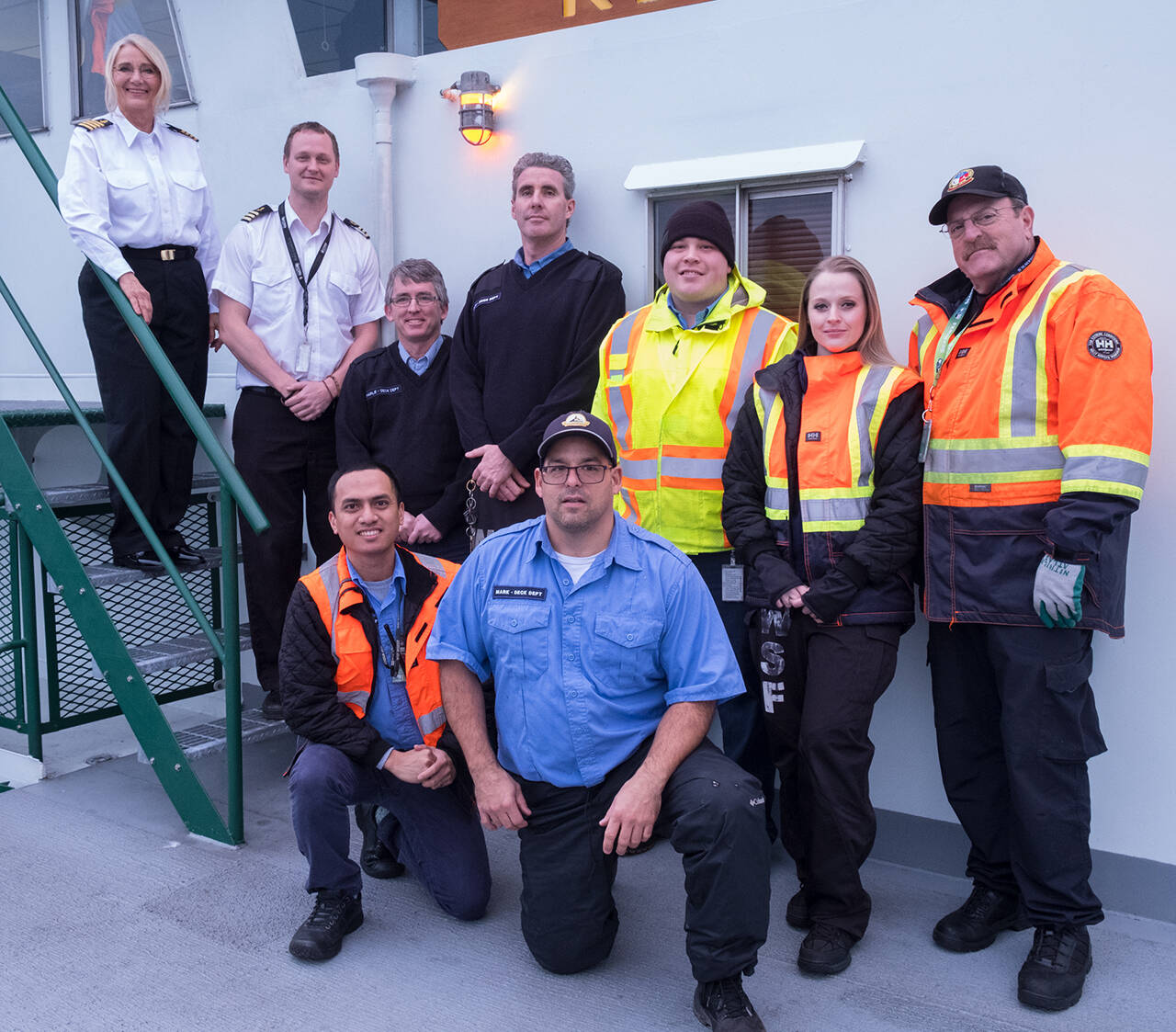If you speak to Washington State Ferries (WSF) Captain Marsha Morse about her career, she will tell you about all the things she loves about her job: being on the water, being up in the pilothouse of the ferry and supporting her crew.
However, Captain Morse, who is also a longtime Vashon resident, will be retiring after 46 years on the job. She begins her first day of retirement on Oct. 1.
She began her career with the ferries back in 1975, when she had been out of college for about a year. Morse was looking for work, as she had been working in an assortment of temporary jobs up until that time.
That summer, she was going to Vashon to visit her horse, which friends were looking after for her.
“I ended up chatting with one of the deckhands,” said Morse. “I said I was looking for work, and he said, ‘Oh, you should get on with the ferries. They’re hiring women now.’”
“It was just a spur of the moment thing,” said Morse. “I kind of think it’s just an accidental, coincidental conversation — I always say my horse helped me get my job.”
As someone who had studied marine biology in college, the prospect of having a job outdoors and being out on the water was exciting to Morse. Although Morse only planned to work for WSF for two years, she decided to stay and work her way up with the ferry system.
While Morse was one of the first women to become a captain for WSF, few women hold the position to this day. According to Justin Fujioka, Communications Consultant for WSF, 70 employees hold the position of captain on the ferry system. Of these 70 employees, five are women.
One of Morse’s favorite memories working on the ferries is during her time working in the San Juan Islands around 14 years ago.
According to Morse, the ferry runs in the San Juans were very interesting, and a great learning experience, as she went through the passes in the area, did the Anacortes-Sidney run, and traveled into Canada.
“Also, working as a captain on the passenger-only boat was a big deal for me,” said Morse. “I had just started to work as captain and the state had the passenger-only boat for many years.”
Morse’s crew members will miss her once she retires. Eric Conklin, chief mate for WSF, has worked with Morse for the last 20 years.
The two currently work together on what is referred to as the “triangle route,” which is the ferry route that serves the north end of Vashon and travels to Fauntleroy and Southworth.
Conklin describes Morse as one of the “most patient and kind people you can work with.”
When asked what would be missed most about Morse upon her departure, Conklin said that her personality and “overall kindness to everyone” would be missed once she retired.
Able Seaman Mark Savio, who has worked with Morse for about four years, noted Morse’s extensive knowledge and remembered when she was involved in a rescue situation back in December 2016.
“A man took a spill—he was walking onboard and he fell over, and a bunch of us did CPR, but she was the Master that day.”
Members of the crew, including Morse, were given Life Ring Awards for their actions.
“She has a very positive spirit,” said Savio. “She’s very team-oriented, she wants everyone to be included, she wants everyone to be working together. She’s a good team-builder.”
Looking ahead to her impending retirement, Morse says she looks forward to the freedom to do different things. One of her first plans was to travel to Australia to see one of her brothers, but COVID-19 has put a pause on that plan.
Morse said that one of her favorite things is taking classes, so she does plan to go back to take classes during retirement.
She holds a master’s degree in systems, general systems, and whole systems, and Morse said she uses systems thinking and would like to help people use systems thinking in their lives as well.
“So even if it was a class on how to be a consultant, or how to teach, “said Morse. “Something along those lines where I can be of use to people that might want to do some rethinking of their approach using those systems.”
Morse also said she would like to take art classes and plans to still work with her horses. She is also looking at being a support person to people in the maritime industry and applying to be an assistant to a counselor for mariners going through difficult times.
When asked what she’ll miss most about the ferries, Morse admits one thing.
“That’s the hard part, I really don’t want to retire, because I’m going to miss everything,” she said.



